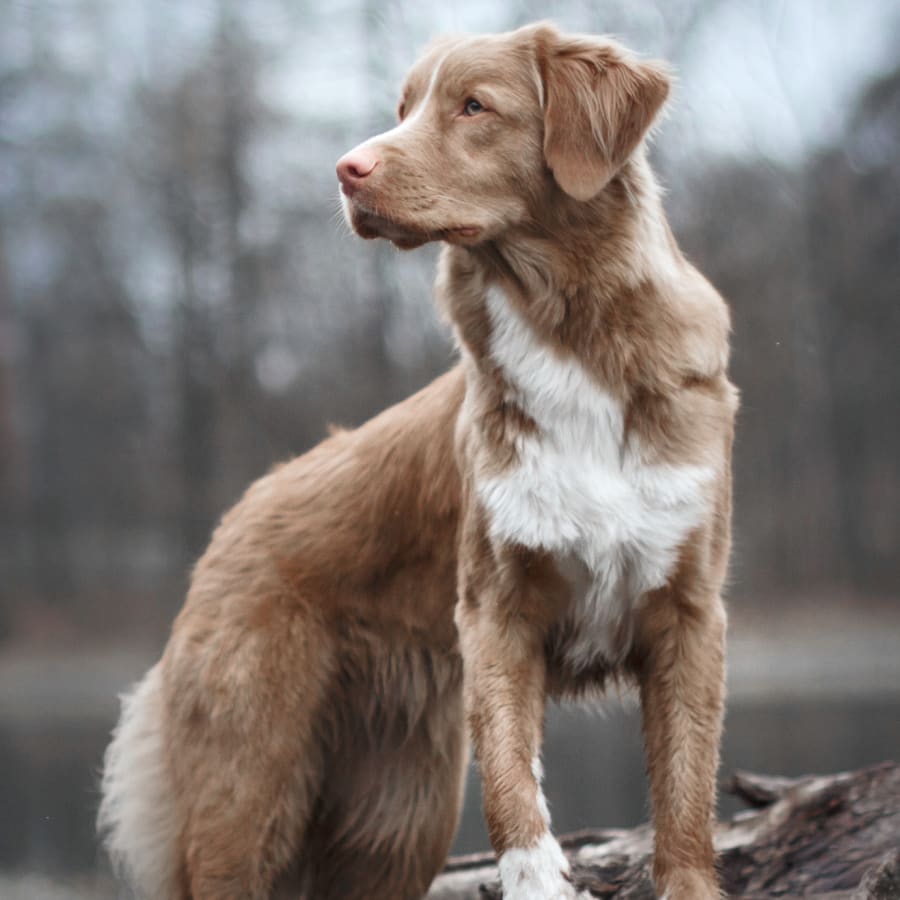Geriatric Care for Senior Dogs & Cats
Senior pets require routine preventive veterinary care and early detection throughout their golden years to help them maintain a good quality of life as they age.
Diligent care can help extend your pet's life and good health as they age, so it's important that they attend regularly scheduled wellness exams, even if they seem healthy.
Our veterinarians are here to help geriatric pets in Rochester achieve optimal health by identifying and treating emerging health issues early, and providing proactive treatment while they are still effectively and easily manageable.

Typical Health Problems
Companion cats and dogs are living longer than ever before thanks to advances in veterinary medicine and better dietary options.
Thus, pet owners and veterinarians must now contend with more age-related conditions than in the past.
The following conditions are more common in aging pets:
- Joint or bone disorders
Geriatric Dogs
As your dog reaches their senior years, a variety of joint and bone disorders can cause pain and discomfort. Our veterinarians see a variety of joint and bone disorders in geriatric pets, including arthritis, hip dysplasia, osteochondrosis, decreased spinal flexibility, and growth plate disorders.
Addressing these issues early on is critical for your dog's comfort as they age. Joint and bone problems in senior dogs are treated in a variety of ways, from reducing exercise to administering analgesics and anti-inflammatory medications to performing surgery to remove diseased tissue, stabilize joints, or alleviate pain.Geriatric Cats
While we usually associate osteoarthritis with older dogs, it can also affect your senior cat's joints.
Osteoarthritis symptoms in cats are subtler than in dogs. Weight loss, loss of appetite, depression, change in general attitude, poor grooming habits, urination or defecation outside the litter pan, and inability to jump on and off objects are all common symptoms of osteoarthritis in geriatric cats. Cat owners rarely complain of lameness.
- Cancer
Cancer kills about half of all pets in the United States, according to estimates. As a result, it's critical for your senior pet to have regular wellness exams as they get older.
Bringing your geriatric pet in for routine checkups, even if they appear to be in good health, allows your veterinarian to look for early signs of cancer and other diseases that respond better to treatment when caught early.
- Heart Disease
Heart disease can be a problem for geriatric pets, just like it is for humans.
Senior dogs frequently suffer from congestive heart failure, which occurs when the heart does not efficiently pump blood, causing fluid to build up in the heart, lungs, and chest cavity.
While heart disease affects cats less than dogs, Feline Hypertrophic Cardiomyopathy (HCM) is fairly common. The walls of a cat's heart thicken as a result of this condition, reducing the heart's ability to function efficiently. - Blindness and hearing loss
Eye and ear degeneration cause hearing loss and blindness in older animals, but this occurs more frequently in dogs than in cats.
In cases where these ailments are brought on by old age, geriatric pets can adjust their behavior, and pet owners may not notice them.
- Liver disease
Liver disease is common in senior cats and may be caused by high blood pressure or hyperthyroidism. Loss of appetite, jaundice, drooling, vomiting, diarrhea and increased thirst are all symptoms of liver disease in cats.
Seizures, vomiting, diarrhea, fever, jaundice, abdominal fluid buildup, and weight loss are all possible symptoms of liver disease in dogs.
If your senior dog or cat exhibits any of the symptoms of liver disease, immediate veterinary care is necessary.
- Diabetes
Although dogs and cats can develop diabetes at any age, most are diagnosed between the ages of 7 and 10.
Excessive thirst, increased appetite, weight loss, cloudy eyes, and recurring infections are all signs of diabetes in dogs and cats.
Obesity can also increase the risk of diabetes in cats and dogs.
- Kidney disease
The function of a pet's kidneys tends to deteriorate as they age. Medication used to treat other common conditions seen in geriatric pets can sometimes cause kidney disease.
Chronic kidney disease is not curable, but it can be managed with a combination of diet and medication.
- Urinary tract disease
Our Rochester veterinarians frequently see geriatric cats and dogs with urinary tract disorders and incontinence issues. Elderly pets are more prone to accidents as the muscles that control the bladder weaken, but it's important to note that incontinence could be a symptom of a larger health problem, such as a urinary tract infection or dementia.
If your senior pet has incontinence issues, it's critical that you take him or her to the vet for a thorough examination.
Veterinary Care for Senior Pets
Our veterinarians will conduct a complete physical examination of your senior pet, as well as any necessary tests, to gain a better understanding of his or her overall physical health and condition.
As a result of the findings, we'll recommend a treatment strategy that may include prescription medications as well as exercises and dietary modifications to help your senior pet live a healthier, more comfortable life.
Routine Wellness Exams
Preventive care is critical for your senior pet's health, happiness, and fulfillment. Additionally, it enables our veterinarians to detect diseases early.
Early disease detection helps maintain your pet's physical health and identifies emerging health problems before they become long-term problems.
Regular physical examinations provide the best chance for your pet's long-term health.
Looking for a vet in Rochester?
Our experienced vets are passionate about the health of Rochester companion cats and dogs. Get in touch today to request an appointment for your pet.
Contact
Hours
-
Click to View
- Monday:08:00 am - 08:00 pm
- Tuesday:08:00 am - 08:00 pm
- Wednesday:08:00 am - 08:00 pm
- Thursday:08:00 am - 06:00 pm
- Friday:08:00 am - 04:00 pm
- Saturday:08:00 am - 12:00 pm
- Sunday:Closed
